|
A king was on a boat ride with his entire court for a day of sight-seeing.
The king pondered, “I conquered LD’s country and had confined him under supervision for quite a while. Now his children are grown up. One of his sons snuck out and left the country. Does anyone know of his whereabouts?” There is usually a wide gap between people’s words and actions.
Therefore, the ancients used to employ these tests to assess people: Mahayana (Big Vehicle Buddhism) is primarily the perfection of the three non-outflow (i.e. lacking outflows or leakages) studies of Precepts, Samadhi and Wisdom. Most of us fall short and yet have no idea why so.
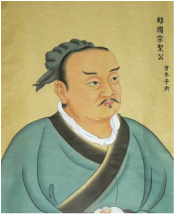 In ancient China, there was a sagely man called KL. He would not compromise himself and therefore decided to join the court. Many kings came offering official positions but he turned them all down. He was so poor that when he passed away, they had to use an old worn out blanket that was too short to cover his body. Zeng Zi, a well-known Confucian scholar, came to pay respect. How does one practice self-improvement as advocated by Confucius?
When seeing other’s right, one strives to emulate; when seeing other’s wrongs, one self-examines in order to correct one’s mistakes. A man decided to go for a stroll to enjoy the good weather. When he left his home, he was in white clothing. Half way through his promenade, it rained and he was drenched. His relative whose home was nearby lent him some dark clothes to wear.
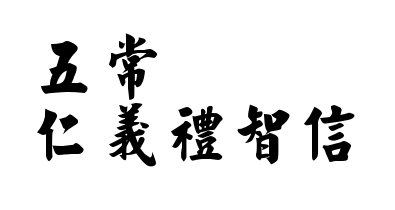 Confucius taught that people should nurture the Five Virtues: Humaneness, Principle, Etiquette, Knowledge and Trustworthiness. We should take a closer look at them and compare them against the Buddhist teachings. Yan Hui, Confucius’ wisest disciple asked: “I want to be poor but as if I am rich, lowly but as if I am of high station, lacking in physical strength but as if I can command respect, and indulge myself my entire life without any fear. Is that reasonable?”
Confucius was strolling in the open field. He ran into two kids who were arguing adamantly with each other.
One claimed that the sun was closer to the earth at sunrise and further from it at noon. The other maintained just the very opposite.
One of my disciples asked me who to vote for on the upcoming election.
I explained that under the current circumstances, it was better to vote for such and such candidates. However, I also explained that I have not voted for a long time because of the following reasons: 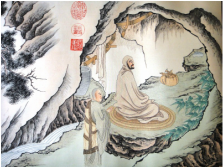 One of the first lessons that I learned from my late teacher, Great Master Xuan Hua, was to constantly look and draw near Good Knowing Advisers (GKA). After practicing Mahayana for 20 years, I am beginning to understand its importance. A visiting ambassador said: “I wish you a long life.”
The king replied: “Please don’t say that!” The ambassador then said: “I wish you much wealth.” 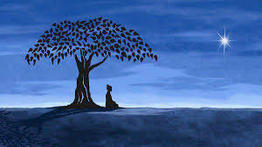 Life is a struggle between Good and Evil. In this Dharma Ending Era, the ghosts and demons are proliferating and prevailing over the good and sagely. Ghosts and demons are in the destruction business: they aim to create havoc and destroy the world as we know it. Ironically, they will eventually succeed in their endeavors which will result in their own destruction. 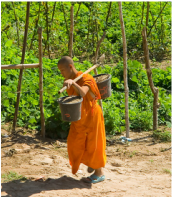 Traditionally, in larger Way places, there is a monk or nun designated as Kitchen manager or Food and Drink manager, 點坐法師. Those who wish to make food and drink offerings to the temple must go see him. He accepts all such offerings and disburses them to the kitchen staff for cooking. Quite often, the temple cannot use up the food offerings quickly enough. Therefore, the Kitchen manager would often ask for a formal procedure called karmavachana through which he formally requests permission from his “bosses” to redirect the food and drink usage, say by donating it to other temples. During the past several years of teaching, I have had the opportunity to encounter all sorts of people. In particular, I’ve met three very evil people: two women and one man. How do you recognize them?
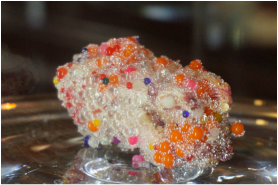 During the 2012 year-end Chan Qi (meditation retreat) a man came for one full week. He practiced vigorously and because of his sincere effort, he received many spiritual, physical and emotional benefits. Therefore in gratitude, he offered his collection of 10,000 Shakyamuni shariras to the temple. He had been collecting shariras for several years. There was a Caucasian Chan student who took refuge with a Japanese Zen master. He came to our temple in order to learn more about Mahayana. He was well-educated and wished to devote his life to Buddhism to help others. He planned to follow the Japanese tradition of new Sangha where left-home people can marry and have a family.
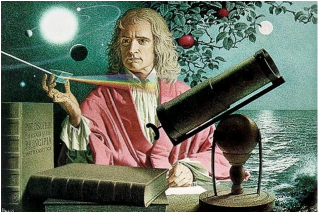 In the past, I have received a lot of questions on the scientific proof of Buddhism. I am no scientist and therefore I can only offer the following limited view. Science continues to evolve; therefore it still does not know everything. For example, there are some Nobel of Science laureates who believe in God, spirits, etc. In contrast, there are also some others who would say that such beliefs are sheer nonsense.
Last week, we went in search of a print shop to print the “Chan Handbook.”
This time, a Buddhist disciple brought us to a place in Santa Ana. She has been printing Buddhist books on her own for 17 years, ever since she came to the United States. She owns a nail shop and when she earns enough money she spends it on printing these books. When I first started to practice meditation, I desperately wanted to enter First Dhyana because I realized that it was a critical milestone. I researched and tried everything but was not able, as I found out many years later, to enter First Dhyana until after two years of practice.
|
|
RELATED LINKS© 2010 – 2023 Chanpureland.org
|
SubscribeJoin our mailing list today!
|
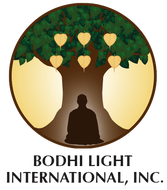
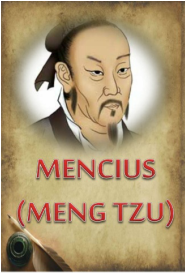

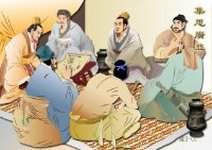
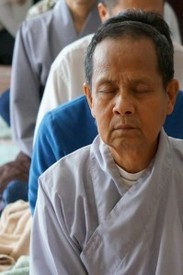
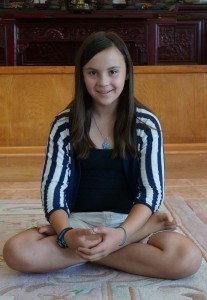
 RSS Feed
RSS Feed